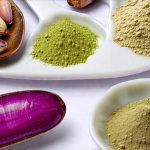For millennia, cultures around the globe have intuitively understood the connection between food and well-being, often incorporating specific plants not just for flavour but also for their perceived medicinal qualities. This understanding predates modern scientific investigation, yet many traditional remedies are now being validated by research into phytochemistry – the study of plant compounds. The digestive system, arguably central to overall health, has particularly benefited from this historical integration of herbs into culinary practices. From soothing upset stomachs to promoting efficient nutrient absorption, carefully chosen herbs can play a significant role in supporting optimal digestion and gut function.
The modern Western diet frequently lacks the nuanced herbal support common in traditional cuisines, often prioritizing convenience and processed foods over naturally occurring digestive aids. This has led to an increase in digestive complaints like bloating, indigestion, and irritable bowel syndrome (IBS). Reintroducing culinary herbs isn’t about a dramatic overhaul of eating habits; it’s about strategically incorporating flavourful plants that offer gentle yet powerful support for the entire digestive process – from initial chewing to elimination. It represents a return to a more holistic approach where food is not just fuel, but also medicine.
The Carminative Herbs: Reducing Bloat and Gas
Carminatives are herbs well-known for their ability to alleviate gas and bloating, often stemming from the breakdown of foods in the digestive tract. These aren’t necessarily about stopping gas production entirely – a natural part of digestion – but rather helping it move through the system more comfortably and preventing uncomfortable buildup. Many carminative herbs contain compounds that relax the smooth muscles of the intestinal tract, allowing for easier passage of gases, while others actively reduce the formation of gas bubbles. This makes them particularly useful for individuals prone to bloating after meals or experiencing discomfort from certain food sensitivities.
Common examples include fennel, peppermint, dill, and chamomile – all widely used in kitchens around the world. Fennel seeds, often chewed directly after a meal in some cultures, contain anethole which has antispasmodic properties. Peppermint tea is a classic remedy for indigestion, with menthol relaxing digestive muscles. Dill, frequently paired with fish, not only enhances flavour but also aids digestion. Chamomile, known for its calming effects, can reduce intestinal spasms and soothe the digestive system. Using these herbs isn’t just about treating symptoms; it’s about proactively supporting a smoother digestive process.
The effectiveness of carminatives is often enhanced by synergistic interactions between different compounds within the herb itself, and also with other foods consumed. For example, combining dill with fatty fish not only tastes good but helps break down the fats more efficiently, reducing bloating associated with their digestion. Incorporating these herbs regularly into meals can create a subtle yet significant improvement in digestive comfort over time. Understanding digestive enzymes can help maximize benefits.
Ginger: Beyond Nausea Relief
Ginger (Zingiber officinale) is arguably one of the most versatile culinary herbs, renowned for its ability to ease nausea and vomiting – particularly morning sickness or motion sickness. However, its benefits extend far beyond just settling an upset stomach. The active compounds in ginger, notably gingerols, possess potent anti-inflammatory properties that can soothe irritation within the digestive tract. This makes it valuable for individuals dealing with conditions like dyspepsia (indigestion) or even mild forms of inflammatory bowel disease.
Ginger also stimulates digestive enzymes, promoting efficient breakdown of food and improving nutrient absorption. It increases gastric emptying – the rate at which food moves from the stomach to the small intestine – preventing feelings of fullness and bloating. This effect can be particularly helpful for people who experience slow digestion. There are numerous ways to incorporate ginger into your diet:
1. Grated fresh ginger in stir-fries or soups
2. Ginger tea made with sliced ginger root
3. Crystallized ginger as a snack (in moderation)
It’s important to note that while generally safe, excessive ginger consumption can interact with blood thinners and may not be suitable for everyone. As always, it’s best to consult with a healthcare professional if you have underlying health conditions or are taking medication. A healthy mucosal health supports better absorption of nutrients from ginger.
Turmeric: Anti-Inflammatory Powerhouse
Turmeric, derived from the Curcuma longa plant, is celebrated in Ayurvedic medicine as a powerful healing spice. Its vibrant yellow colour comes from curcumin, a potent anti-inflammatory compound that has garnered significant scientific attention. Chronic inflammation plays a role in many digestive disorders, including IBS and Crohn’s disease, making turmeric a potentially valuable ally for gut health. Curcumin helps reduce inflammation throughout the digestive tract, alleviating symptoms like abdominal pain and diarrhea.
However, curcumin is poorly absorbed by the body on its own. Combining it with black pepper, which contains piperine, significantly enhances its bioavailability – allowing more of the beneficial compound to be utilized. This explains why turmeric is often used in conjunction with pepper in traditional Indian cuisine. Beyond its anti-inflammatory effects, turmeric also stimulates bile production, aiding in fat digestion and preventing gallstones. Consider apple cider vinegar to further support digestive processes.
Rosemary: Supporting Bile Production & Enzyme Activity
Rosemary (Salvia rosmarinus) isn’t typically the first herb that comes to mind when thinking about digestive health, but it holds significant benefits. Its aromatic compounds stimulate the production of bile – a crucial fluid for emulsifying fats and absorbing fat-soluble vitamins (A, D, E, and K). Adequate bile flow is essential for efficient digestion and prevents constipation associated with poor fat absorption. Rosemary’s ability to improve bile secretion makes it particularly helpful when consuming fatty meals.
Furthermore, rosemary contains compounds that support the activity of pancreatic enzymes – responsible for breaking down proteins, carbohydrates, and fats. This enhanced enzymatic action improves overall digestive efficiency and reduces the risk of indigestion. Rosemary can be incorporated into cooking in numerous ways:
– Sprinkled fresh over roasted vegetables or meats
– Added to marinades and sauces
– Infused in olive oil for a flavourful finishing drizzle
It’s worth noting that individuals with gallbladder issues should exercise caution when consuming rosemary, as excessive bile stimulation can exacerbate their condition. Gallbladder health is vital for proper fat digestion.
Herbal Teas: Gentle Digestive Support
Herbal teas offer a soothing and accessible way to incorporate digestive support into daily life. Unlike caffeinated beverages which can sometimes irritate the gut, many herbal teas have calming properties that promote relaxation and aid digestion. Choosing the right tea depends on the specific digestive concern. Peppermint tea remains a classic for relieving bloating and indigestion, while chamomile tea is ideal for soothing an upset stomach and reducing stress – often linked to digestive issues.
Ginger tea, as discussed earlier, offers anti-nausea benefits and stimulates digestion. Fennel tea is particularly effective for reducing gas and bloating after meals. Licorice root tea (deglycyrrhizinated varieties are preferred) can soothe the lining of the digestive tract and reduce inflammation, but should be used cautiously due to its potential impact on blood pressure. It’s essential to source high-quality herbal teas from reputable suppliers to ensure purity and potency. Many benefit from fermented foods as well, for a holistic approach.
Brewing herbal teas correctly is also important for maximizing their benefits. Generally, using filtered water and allowing the herbs to steep for 5-10 minutes allows for optimal extraction of beneficial compounds. Avoid adding sugar or artificial sweeteners, as these can counteract the health benefits. A small amount of honey can be added if desired, but should be used sparingly. Herbal teas are a gentle yet effective way to support digestive health and promote overall well-being. Synbiotics may also enhance the benefits of herbal tea.


















